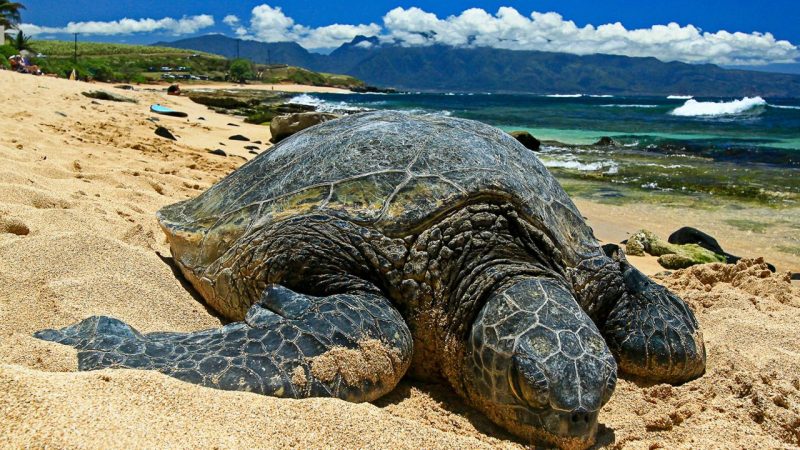Beaches in Bali are considered hostile for sea turtles wanting to lay eggs due to human interventions at the beaches.
“There are some human interventions causing sea turtles that previously laid eggs to not lay eggs anymore. The easiest example we can see here is a breakwater,” said Head of Bali’s Centre for Natural Resources Conservation Raden Agus Budi Sentosa at Mertasari Beach, Denpasar City on Thursday 20th January.
Aside from the existence of breakwaters, the use of beaches for tourism such as beach clubs also causes sea turtles to be reluctant to lay eggs. Beach clubs usually use spotlights towards the sea which puts them off.
“If there were floodlights towards the sea, the sea turtles will not lay eggs. Then there are loud noises until the evening. Remember, sea turtles lay eggs at night,” Sentosa explained.
Sentosa has asked Bali’s local government to make special rules regarding the use of beaches on the island so that sea turtles can lay eggs comfortably. He has invited the local government to return Bali to the paradise island for sea turtles to lay their eggs that it once was.
“Maybe we need to share because it’s also impossible for us to leave everything without activity. Maybe there are arrangements on the beach where humans can move, where animals can lay eggs. More details later,” he said.
Meanwhile, his party has now found more sea turtles laying eggs on Kuta Beach after the area was deserted by tourist visits due to the COVID-19 pandemic. So far, four sea turtles have been found.
“Human activities on Kuta Beach have decreased a lot. Actually, the point is that with less human activity, the more turtles lay their eggs,” he said.
Based on this theory, the biggest predator for sea turtles is humans followed by other animals, both on land and in the ocean. Humans hunting turtles must be stopped, he added, because the percentage of hatchlings that mature to be able to lay eggs is only 1 to 2 percent.
“The number is very small. In fact, there is some literature that says from 1,000 turtles that hatch, a maximum of five end up laying eggs. The more turtles released to the ocean, the better it will be,” he said.
All types of sea turtles in Indonesia have been protected by law number 5 of 1990 concerning the conservation of biological natural resources and their ecosystems, government regulation number 7 of 1999 concerning the preservation of plant and animals species, and the environment and forestry ministerial regulation number P. 106/MENLHK/SETJEN/KUM.1/12/2018.
Because they are protected by law, all forms of trade in turtles are prohibited, whether alive, dead, or as body parts. Based on law number 5 of 1990 concerning the conservation of living natural resources and their ecosystems, turtle traders can be sentenced to five years in prison and a fine of Rp100 million.
According to the International Union for Conservation of Nature, hawksbill and leatherback turtles are critically endangered. Meanwhile, green turtles, langur turtles, and loggerhead turtles are threatened with extinction.
The provisions of the Convention on International Trade in Endangered Species of Wild Flora and Fauna also state that all types of sea turtles have been included in appendix I resulting in all types of turtles being prohibited from being traded.




